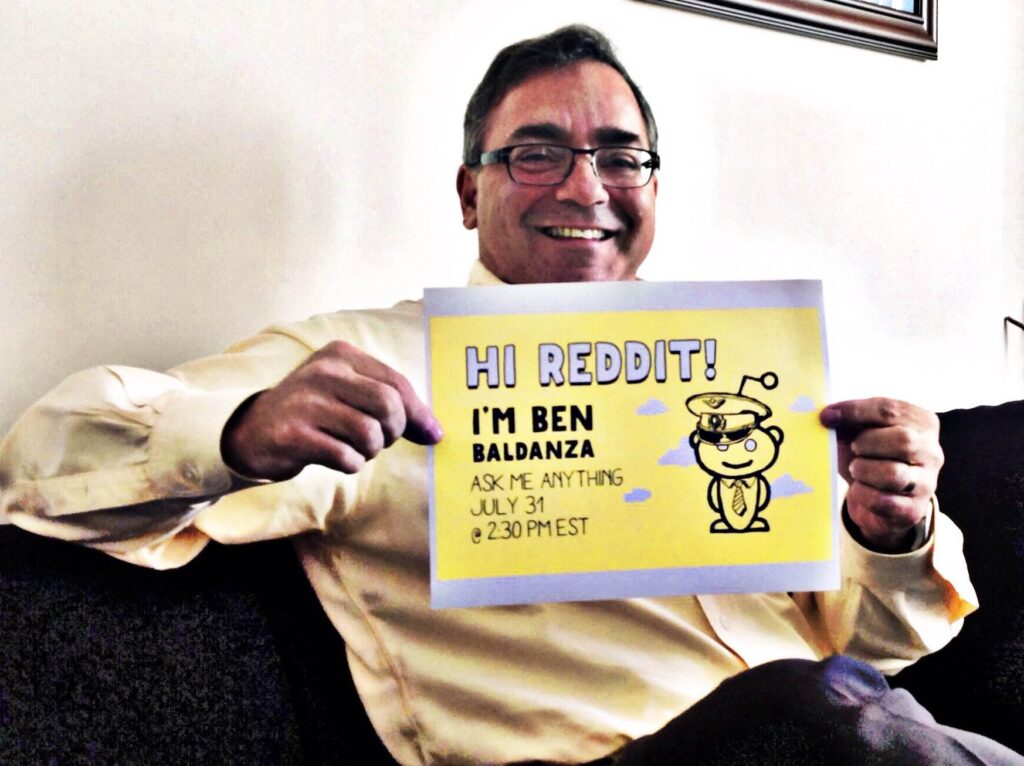
Skift Take
Ben Baldanza, who pioneered the modern ultra-low-cost business model in the U.S. and turned Spirit into one of the most profitable airlines, has died following a battle with ALS.
Ben Baldanza, the former CEO of Spirit Airlines who transformed the ultra-low-cost carrier into a disruptive powerhouse, died on Tuesday. He was 62.
He died from Amyotrophic Lateral Sclerosis, also known as ALS or Lou Gehrig’s disease. His death was announced in a LinkedIn post Wednesday morning.
The economist and airline executive was born in Rome, New York, in 1961.
Baldanza started his career in the airline industry in 1986, when he joined American Airlines, holding finance and revenue management roles.
During his time at American, the company underwent a golden age in the wake of industry deregulation. It developed a hub system, created a frequent flyer program, and found ways to discount fares. And Baldanza became a part of a so-called “Brat Pack” at American, a group of four employees who went on to run other major airlines.
That group also includes David Cush, the former CEO of Virgin America, Thomas Horton, the former CEO of American, and Doug Parker, who was also CEO of American.
A Great Disruptor
Baldanza went on to hold roles at Northwest Airlines, UPS, Continental Airlines and U.S. Airways, but he’s most remembered for his time as the top executive of Spirit.
When Baldanza first took the helm of Spirit in 2005, the carrier was unprofitable, reporting yearly losses as high as $79 million.
Under Baldanza’s leadership, Spirit started adding more leisure routes and transitioning to its all-Airbus fleet.
Spirit was already a low-cost airline, but Baldanza wanted Spirit to lean more into its discount status and essentially pioneer the modern ultra-low-cost model in the U.S. that influenced other airlines like Frontier, Allegiant, Avelo and Breeze. Baldanza slashed fares and introduced ancillary fees for carry-ons, checked-in baggage, seat selection and food and drink.
And with these changes, Spirit started seeing results. The carrier became one of the most profitable in the U.S. and it forced legacy airlines to eventually launch basic economy fares, which mirrored the ultra-low-cost model.
Customers had a love-hate relationship with Spirit. The carrier rolled out outrageous ads to promote its dirt-cheap fares. One ad depicted a mom cheating on her husband with her son’s friend, and the tagline was “You think that’s low? Spirit Airlines fares are even lower.”
In the late 2000s and early 2010s, Spirit reveled in the outrage. In another ad, Spirit had a male and a female strip down to their underwear to show how much travelers can fit into the one personal item Spirit allows for free.
Whenever customers were quick to criticize Spirit’s bare bones service, Baldanza had some memorable lines. He often likened Spirit as the “Big Yellow Bus of the Skies.”
“No one gets surprised when you go into McDonald’s and don’t see filet mignon on the menu,” he said in response to the typical Spirit customer question: “Where’s the beef?”
Board Roles and a Podcast
After leaving Spirit in 2016, Baldanza held board roles at JetBlue and Six Flags. He was also an adjunct professor in economics at George Mason University.
He hosted the “Airlines Confidential” podcast with former Wall Street Journal travel editor Scott McCartney. The two would frequently interview executives in the airline industry and discuss industry news.
Baldanza eventually left the podcast in August after battling ALS, which he was first diagnosed with in 2022.
He is survived by his wife Marcia, his son Enzo, his sisters, Lia Farrington and Judy Looker, and his brother, Joe Baldanza.
